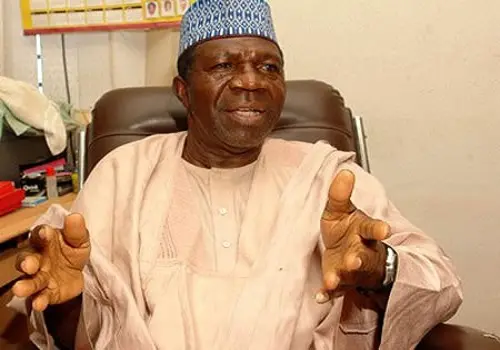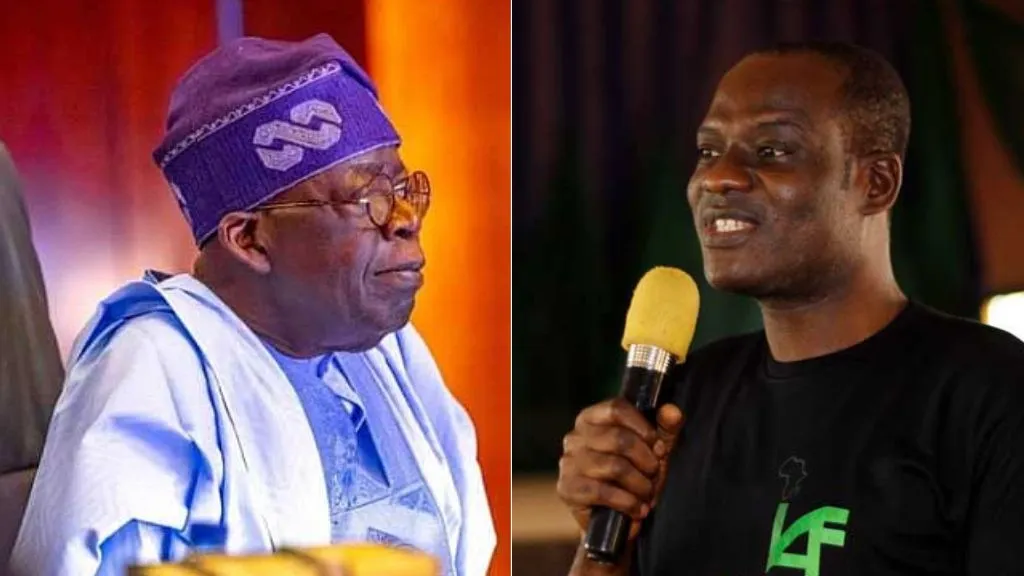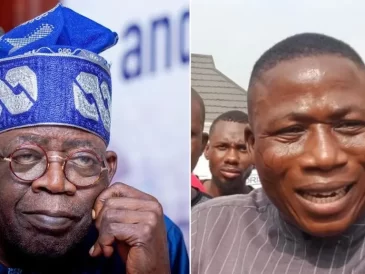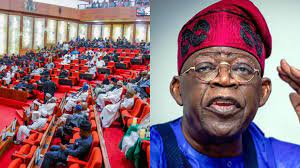Senator Ameh Ebute, CON, is a member of Board of Trustees of the ruling All Progressives Congress, APC, and President of the Senate in Nigeria’s Third Republic. In this interview with Dapo Olaosebikan in Abuja, the Benue State-born lawyer and elderstatesman spoke on many salient issues in Nigeria’s political journey since 1999 and reminisced on his experience in politics before the birth of current political dispensation in the country. Excerpts:
……………………………………
PLEASE SHARE
Sir, almost a quarter of a century of uninterrupted democratic governance in Nigeria since 1999; what is your general assessment of this political journey so far?
It has been a fantastic experience. We fought for it. We expected it; we wanted it and we got it. As I always say, when the struggle was on, many people were being indifferent, nonetheless, we achieved it. It is a thing of joy that one was a part of the struggle for an enduring democratic governance in Nigeria. It is also a joyful thing that one witnessed its takeoff in 1999 and one is still here as part of the process.
So, sir, are you implying that all is well with our current democratic governance in the country and that Nigeria has got to her Eldorado politically?
No, not at all. With current shape of things, which of course, began almost at the takeoff in 1999, one may be tempted to say that what we have now, I mean our politics and governance at all the three tiers of government, etcetera, etcetera, are not what we fought for and expected.
Your Excellency, what did you really fight for and expected?
You mean in terms of our democracy and institutionalisation of democratic culture and values?
Absolutely sir
I believe most Nigerians; the governing and the led, politicians as well as observers of our ongoing political development, will agree with me that the democratic Nigeria of our dream is where rule of law will determine and prevail in governance; where social justice will be the order of the day and where minority rights will not be permanently subsumed or subjugated by majority rights. The terrifying thing about our democracy as we speak is that everything is now by the rule of money. All over the place, we seem to have forgotten about culture of political sagacity and decorum. Quite very frightening, to say the least.
Sir, are you implying that money politics was not there in our body politic before and during your time as Senate President of the country?
Your question cannot be answered in absolute term. It is a fact you can’t be in politics without spending some money. Before and during my time as the Senate President, money was not brazenly spent as now. The quality of leadership was essentially determined and based on character. As it stands now, character and integrity have no place in the scheme of things in our politics and leadership in Nigeria. In Nigeria today, it is very sad and outrageous that money determines who gets what, when and where.
Is then right to say that money Is the root of crises and violence Nigeria has experienced since 1999?
That’s right. The greed by our politicians nowadays and the corruption of the political process as well as our institutions is very bewildering; that’s why people kill and engage in all sorts of criminalities to win elections in order to get to elective posts all over Nigeria. In some extreme situations, people have taken our fragile unity to the brink because they felt they should win at all costs.
But, institutions like the General Abdulsalami Abubakar led National Peace Committee and other private initiatives have sprung up to assuage frail nerves, have they not been relevant?
It is a good thing that these institutions have sprung up and to some considerable extent, they have acted in best interest of the nation and development of our democracy. But, overall, if we do not deal with corruption of our electoral system because of money, their efforts may be rendered unhelpful in the end.
In a way sir, are you saying that crises and violence in politics and governance in our current political dispensation are all about by the highest bidders?
That’s what I am talking about. But, the good side is that, in terms of provision of social amenities, there has been some remarkable improvement generally speaking. Overall however, money has largely become the bane of current democratic experience in Nigeria. Compared to our time, the greed of politicians of today is something else. Politics in Nigeria today is bereft of ideology. This is my honest assessment because as a national political leader, I have seen it all as I began in my active participation in political process as a local government chairman and later emerged as the Senate President of Federal Republic of Nigeria.
Thank you for this revelation sir. So, you began your political career as a Local Government chairman?
Yes indeed
How was the office of a local government chairman then?
The office of the local government chairman was not as constituted now, though it is still the same thing symbolically and in nomenclature. The local government chairman at the time was not the accounting officer. We didn’t control any fund then.We had an officer who controlled the vault; but we had to make decisions for them to implement. They couldn’t misappropriate funds because there were checks and balances.
How would you compare the local government system then and today?
The problem with the local government system then was the person in office as governor. There was no much money as we have now. Funds came from the state government. After paying civil servants we earmarked on projects. From my own local government’s funds we built the headquarters that is still there today. But after seven months, I had to resign because of pressure from chiefs, those who wanted to become chiefs, clan heads, district heads and so on. I couldn’t withstand the temptation of corruption, and the job was not appealing as I thought. My legal practice in Makurdi was more appealing and brought much more money than that position. That was why I had to leave after seven months. A few months after my departure, my deputy took over from me, but the local government was later dissolved on the ground of corruption.
As a local government chairman, did you operate a joint account with your state government?
There was no joint account because the 1999 Constitution had not come into existence. We operated under the 1963 Constitution.
Sir, how do you feel about emergence of your friend, Asiwaju Bola Tinubu as President of Nigeria?
I feel happy. As I always say, his becoming our president is the hand of God in the affairs of men. It is God that said it is the person who contributed highly to democratisation of Nigeria that would have the day. God said it is the person who was put in detention for standing up to defend June 12, 1993 election and almost lost his life for democracy that would have the day. God did it and we are all happy, especially me as the Senate President of that historic era who co-shared the detention experience with him and four other colleagues who patriotically fought for the de-annulment of the June 12, 1993 presidential election won by late Bashorun MKO Abiola.
You and other four leaders were in detention with Asiwaju in Lagos? Could you recall your experience at Alagbon Close sir?
It was an unforgettable experience. We were there the night they brought MKO Abiola out and the whole Lagos people gathered there without knowing that he was being taken to Abuja–it was a terrible experience. We were in detention expecting the worse from Abacha regime until the Court of Appeal presided over by Justice Zulu Gambari, now the Emir of Ilorin, freed us. Six of us were clamped in detention, while three of us–Asiwaju, myself and Senator Abu Ibrahim, are still alive, unfortunately our other three colleagues are dead-they include Senator (Engr.) Onyeka Okoroafor, Senator Polycap Nwite and Senator Mark Umoru. For 50 days, we were in detention at Alagbon Close in Ikoyi, Lagos and Senator Oluremi Tinubu was the one coming to give us food. It was a terrible experience.
Quite interesting; could you further expatiate on your struggles against the Abacha regime?
When I became the Senate president in 1993, we never knew that soldiers had cunningly put up a law that Abacha should become the minister who would take over government in case anything happened. The decree that was made before Babangida stepped aside contained a provision that the most senior minister should take over the government if there was anything.
I phoned Abacha, telling him that we wanted to come and see him, but he said we should wait, that he was already coming to Abuja. We didn’t know that they had finished arrangements to take over power. They took over power on November 17, 1993 and drove us out from NICON Hotel.
We couldn’t meet because soldiers took over my house, and I couldn’t go to my official residence. But six months after, we held a meeting in Lagos. About 60 of us attended the meeting and took a resolution and issued a Communique that Abacha should hand over power to Abiola who won the democratic election of June 12, 1993.
Security agents started looking for us. I was arrested from my hotel and taken to Alagbon Close in Lagos. They started looking for other senators like Bola Tinubu, Abu Ibrahim and Onyeka Okorafor–six of us. Other people went underground and they couldn’t lay their hands on them. Six of us were charged to court before Justice Belgore on treasonable felony.
Our lawyer, the late Chief J.O.K Ajayi, appealed to the Court of Appeal. The present Emir of Ilorin, Alhaji Sulu Gambari, was the president of the Court of Appeal and was the presiding judge of the Lagos section of the court. Our appeal went before him and he granted us bail. That was how we came out. When he was pronouncing the judgment, there were calls from Abuja, but he refused to answer. I have great respect for that man. He refused to answer any call until he finished pronouncing the ruling and granted us bail. Even before Abacha died, the charges against us were abandoned and no government pursued the treasonable trial against us.
How and why did you get into party politics in 1999?
I contested and lost to David Mark. That’s the story in short. But I remember I started underground work in 1998. I decided to rest my case and went back to my legal practice.
There have been open and hushed voices about current economic hardship being experienced by a large percentage of Nigerians; have you been able to get to discuss this with your friend, President Bola Tinubu?
No, I have not. The last time we met was when he came to Benue State to campaign for the presidential election which he eventually won. After winning the election and sworn in as president, it has been somehow difficult to reach him. But, I understand that he has been trying very hard to patriotically fix the rot in our economy and other issues which he inherited. Honestly, I believe he will make the difference in our nation’s governance. I wish him good luck./PLEASE SHARE





